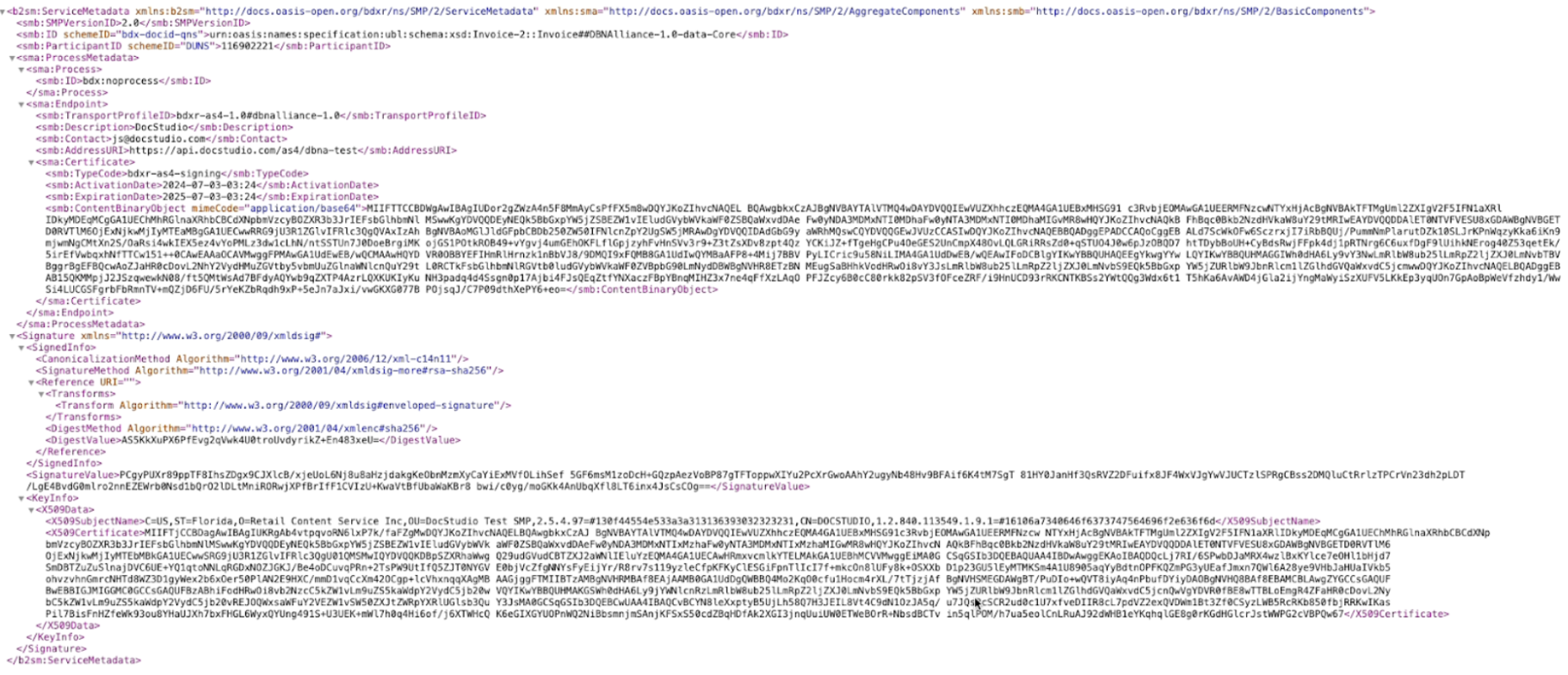SMP Registration
Each Access Point (e-invoice provider), acting as Corner 3 in the 4-corner model, manages an SMP instance that contains information about all document receivers in the DBNAlliance network. SMP services may be provided by DBNAlliance as a shared service or through dedicated SMP software from DBNAlliance-approved vendors.
The SMP service offers two types of feedback: ServiceGroup and ServiceReferences. ServiceGroup provides details on supported document types (e.g., e-invoice, e-remittance, credit note), while ServiceReferences includes information on ProcessIDs,
What is a Service Metadata Publisher (SMP)?
The Service Metadata Publisher (SMP) is a key part of the eDelivery framework that manages capability lookups and metadata. It helps facilitate message exchanges by providing essential information for interoperability.
When a Sending Party’s Access Point needs to communicate with a Receiving Party, it first finds the Receiving Party’s SMP address. The SMP then provides metadata about the Receiving Party’s message exchange capabilities and requirements.
SMPs act as directories that store and manage this metadata, ensuring accurate and efficient message exchanges. They are often distributed across networks and regions.
The SML resolves participant IDs (like EIN, SSN) to the SMP URL, not directly to the AS/4 endpoint. SMPs are publicly accessible via HTTPS and provide information about participants, supported document types, processes, the AS/4 endpoint URL, and the encryption certificate for transmission.
ServiceGroup response

ServiceGroup response

The SMP service receives a URL request with a schemeID (like DUNS, EIN, GLN) and participantID values, and responds with a ServiceGroup feedback.
In summary, SMPs facilitate smooth and effective communication by providing the necessary metadata for proper message exchange and ensuring interoperability between parties.
DBNAlliance SMP Services
- TEST: SMP.DBNALLIANCE.COM
- PRODUCTION: SMP.DBNALLIANCE.NET
SMP Services are structured into 3 distinct tiers to cater to different requirements:
- Default Multi-Tenant:
This tier, managed by DBNA’s shared services, is available to members at a standard rate. It provides a cost-effective solution for organizations that need basic SMP functionality.
- White Labeled:
This option lets members use SMP services through DBNA’s shared infrastructure while having their own domain name. It offers the advantages of shared services along with personalized branding.

- Member Provided:
For those seeking full autonomy, this tier offers a completely member-managed SMP service with no involvement from DBNAlliance. It is ideal for organizations that prefer to handle their own SMP services independently.
Each tier is designed to provide flexibility and support based on organization’s specific needs and preferences.
How to request a new SMP Record?
DBNAlliance
Technical
Receive the latest updates
Receive the latest updates and valuable resources from the DBNAlliance, delivered directly to your email inbox.
